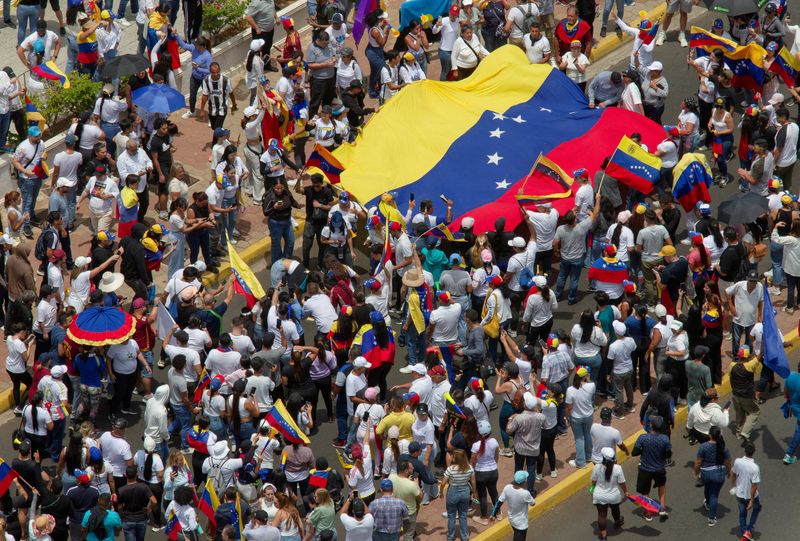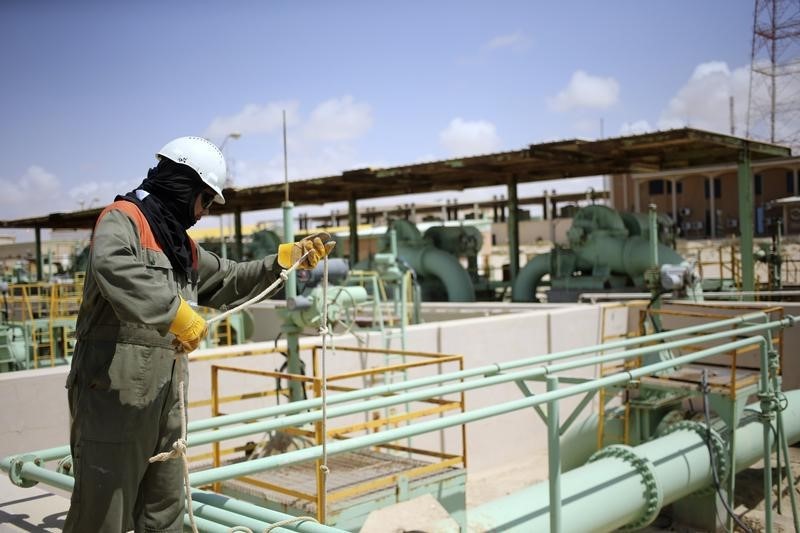CARACAS (Reuters) – Venezuelan oil production and exports operated normally on Thursday after last weekend’s disputed presidential election, which sparked protests and international reactions, but shipping delays since early this year persist, sources said.
As a result of the election process, which usually requires the mobilization of the military, state oil company PDVSA last week ordered joint ventures and its own operational areas to operate with fewer staff and a higher level of security.
The order has been relaxed in recent days, with most PDVSA executives and employees working normal shifts. Crude oil production levels, which averaged 922,000 barrels per day in June according to official figures, have not fallen, the sources said.
However, oil and fuel exports continue to experience delays due to slow shipping from the country’s main terminal, Jose, and the need to move to ship-to-ship shipments for some products, which typically takes longer.
Some fuel imports are also experiencing delays, shipping data and sources show.
The U.S. government granted a broad license to the Venezuelan oil industry last year, allowing PDVSA to export freely to its chosen markets, boosting demand for Venezuelan oil and increasing fuel imports through swaps.
As the OPEC country’s production did not increase accordingly, PDVSA began experiencing delays in the delivery of cargoes negotiated with existing and new customers in early 2024.
The delays, which in some cases last up to 60 days, have particularly affected importers of Venezuelan oil in Asia.
Among the companies that receive crude oil from Venezuela under specific U.S. licenses, including U.S Chevron (NYSE:) and Spain’s Repsol (OTC:), the delays have not been as long, according to PDVSA export data.

PDVSA did not immediately respond to a request for comment.
US officials said this week that individual permits granted to energy companies operating in Venezuela will not be changed or revoked for the time being, despite Washington planning actions in response to the election dispute, including the possibility of new sanctions on the country.


